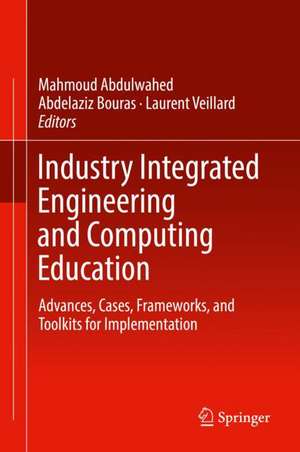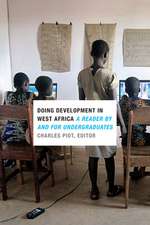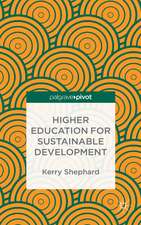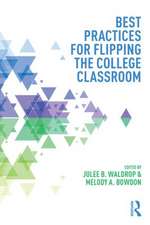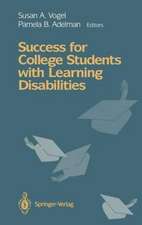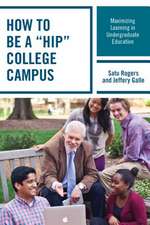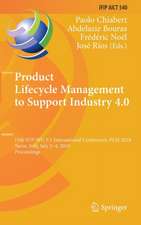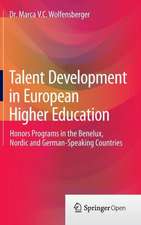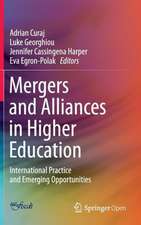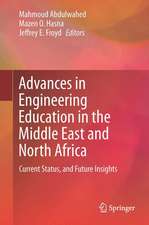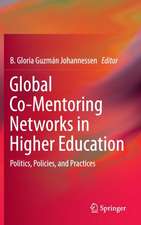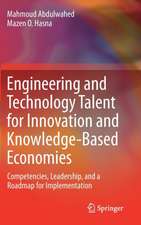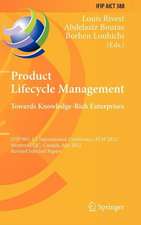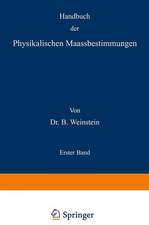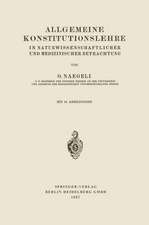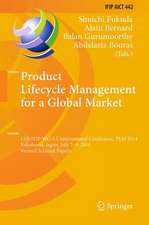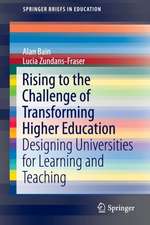Industry Integrated Engineering and Computing Education: Advances, Cases, Frameworks, and Toolkits for Implementation
Editat de Mahmoud Abdulwahed, Abdelaziz Bouras, Laurent Veillarden Limba Engleză Hardback – 8 iul 2019
| Toate formatele și edițiile | Preț | Express |
|---|---|---|
| Paperback (1) | 385.08 lei 6-8 săpt. | |
| Springer International Publishing – 14 aug 2020 | 385.08 lei 6-8 săpt. | |
| Hardback (1) | 392.37 lei 6-8 săpt. | |
| Springer International Publishing – 8 iul 2019 | 392.37 lei 6-8 săpt. |
Preț: 392.37 lei
Nou
Puncte Express: 589
Preț estimativ în valută:
75.09€ • 78.11$ • 61.99£
75.09€ • 78.11$ • 61.99£
Carte tipărită la comandă
Livrare economică 14-28 aprilie
Preluare comenzi: 021 569.72.76
Specificații
ISBN-13: 9783030191382
ISBN-10: 3030191389
Pagini: 240
Ilustrații: XIII, 227 p. 57 illus., 43 illus. in color.
Dimensiuni: 155 x 235 mm
Greutate: 0.52 kg
Ediția:1st ed. 2019
Editura: Springer International Publishing
Colecția Springer
Locul publicării:Cham, Switzerland
ISBN-10: 3030191389
Pagini: 240
Ilustrații: XIII, 227 p. 57 illus., 43 illus. in color.
Dimensiuni: 155 x 235 mm
Greutate: 0.52 kg
Ediția:1st ed. 2019
Editura: Springer International Publishing
Colecția Springer
Locul publicării:Cham, Switzerland
Cuprins
Editorial Perspectives on Industry Integrated Engineering and Computing Education.- Models, Frameworks, and Tools for Translational Utilization in Constructing Industry and Social Needs in Engineering and Computing Education.- Lesson Study among engineering lecturers as a way to plan, implement, and improve new innovations in teaching and learning.- Part-time engineering masters programs: implementing real-life engineering problems as a mean of learning.- Secure BIM learning based on new information technology patterns.- Exploring the rotational onboarding programs for early-career engineers in practice.- Reverse engineering and straightforward design as tools to improve the teaching of mechanical engineering.- Teaching safety, health, and environment in engineering programs for millennials – Ethics is the basis.- Factors affecting the success of IT workforce development, a perspective from Thailand’s IT supervisors and internship students.- A collaborative and interdisciplinary approach to bring closer a curriculum to local employer needs.- Towards a holistic approach of cybersecurity capacity building through an innovative transversal sandwich training.- Industry Integrated Education Toolkits for Academicians, Deduction from the Literature and the Book Global Cases.- Editorial Conclusions.
Notă biografică
Dr. Mahmoud Abdulwahed is Founding Head of Technology Innovation & Engineering Education (TIEE) at Qatar University.
Prof. Dr. Abdelaziz Bouras is a Professor in the Computer Science and Engineering Department – College of Engineering at Qatar University, where he is chairing the industrial and external relations committee and managing the Pre-Award Department at the Office of Research Support.
Dr. Laurent Veillard is an Associate Professor and member of the ICAR laboratory at Lyon 2 Lumière University, France.
Textul de pe ultima copertă
This book introduces recent global advances and innovations in industry integrated engineering and computing education to academics, program managers, department heads, and deans, and shares with readers a critical perspective on future potentials in industry integrated engineering education. It covers topics and issues such as integrated engineering and computing education, part-time engineering masters programs, secure BIM learning, ethics, and IT workforce development. The book concludes with detail information on summarizing and extracting different frameworks, cases, and models into a practitioner toolkit, along with pragmatic recommendations for engineering education academics to quickly utilize, adopt, and adapt the toolkits for their own curricular development activities.
Caracteristici
Introduces novel innovations in implementing industry integrated engineering education Draws on case studies from North America, Europe, Asia, and the Middle East Addresses ethics in engineering education
